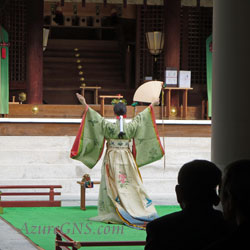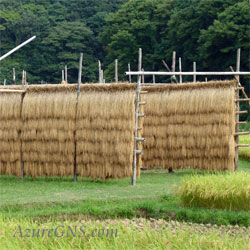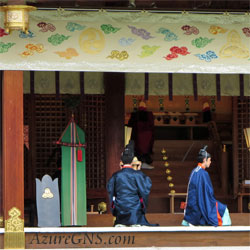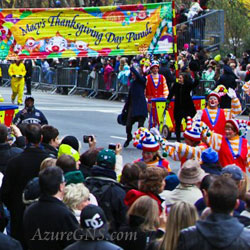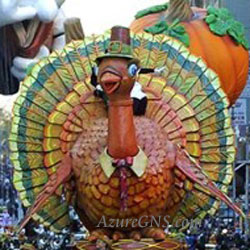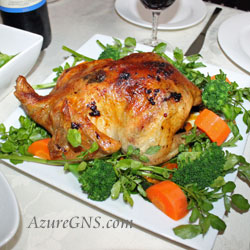国民の祝日
(11月23日)
National Holiday
Kinro-kansha-no-hi;
Labor Thanksgiving Day
(November 23rd)
●勤労感謝の日 Kinro-kansha-no-hi; Labor Thanksgiving Day
●勤労;労働 【米Am.】labor; 【英Br.】labour
●労働者 【米Am.】a laborer; 【英Br.】a labourer ; a worker
●労働組合 a trade union; a labor union
●生産 productivity
●感謝 (神への感謝)thanksgiving; thanks; gratitude; appreciation
●収穫 harvest; crop
●収穫祭 a harvest festival
●農業 agriculture; farming
●農作物 crop(s)
●アメリカ先住民 a Native American
●七面鳥 a turkey
◆勤労感謝の日は11月23日です。
Kinro-kansha-no-hi, Labor Thanksgiving Day falls on November 23.
◆1948年(昭和23年)に「国民の祝日に関する法律」で勤労感謝の日が制定されました。
In 1948 (Showa 23rd yr), Labor Thanksgiving Day was established, in accordance with the law for national holidays.
◆勤労感謝の日の趣旨は「勤労をたっとび、生産を祝い、国民がたがいに感謝しあう」です。
The purpose of Labor Thanksgiving Day is “to recognize the importance of labor, celebrate productivity, and appreciate each other.”
◆1873年(明治6年)から第2次世界大戦の終わりまで、11月23日は新嘗祭(にいなめさい)という宮中行事のひとつでした。
From 1873 (Meiji 6th yr) to the end of World War ll, November 23 was one of the Imperial events called Niiname-sai.
◆新嘗は新饗(にいあえ)のことで、新しい穀物のご馳走という意味です。
Niiname was originally Niiae and means the feast of new grain.
◆かつて新嘗祭では天皇が新穀を神々に供え、ご自身でお食べになっていました。
At one time, the Emperor offered a portion of the first harvest to the gods, and then ate it himself.
◆農家の人々だけでなく国民全体が秋の収穫を祝いました。
Not only farmers but also the entire nation celebrated the autumnal harvest.
◆現在は収穫を祝う祭り以外、この日にあまり大きな行事はありません。
In recent times, there aren’t many big events on this day, other than the harvest festivals.
◆アメリカにも感謝祭がありますが、日本の勤労感謝の日とはずいぶん異なっています。
There is also “a Thanksgiving Day” in America, but it is very different from Labor Thanksgiving Day of Japan.
◆アメリカの感謝祭は11月の最後の木曜日に祝われます。
Thanksgiving in America is celebrated on the last Thursday of November.
◆1620年にメイフラワー号に乗った清教徒がマサチューセッツに着きました。
In 1620, the Pilgrims arrived in Massachusetts on the Mayflower.
◆清教徒は多くの希望を抱いてアメリカに行きましたが、新しい外国の地で作物を栽培するのに大変苦労しました。
The Pilgrims went to America with a lot of hope, but when they arrived, they suffered through very hard times, raising crops in this new and foreign land.
◆アメリカ先住民が彼らにとうもろこし、かぼちゃ、そして多くの野菜の栽培の仕方を教えました。
The Native Americans taught the Pilgrims how to grow corn, pumpkin and other vegetables.
◆翌年清教徒は収穫をあげることに成功して、神に感謝の祈りを捧げました。
The following year, the Pilgrims had a successful harvest, and thanked God.
◆清教徒はご馳走を作り、助けてもらったお礼にアメリカ先住民を招待しました。
They had a feast to which they invited the Native Americans, in appreciation of their help.
◆この出来事がアメリカの感謝祭の始まりです。
This occasion is the origin of Thanksgiving Day in America.
◆アメリカ人にとって感謝祭は家族や親戚と過ごすクリスマスやイースターの次に大切な休日です。
For American families, Thanksgiving Day is the most important holiday after Christmas and Easter.
◆彼らはつめものをした七面鳥、マッシュポテトのグレービーソース(肉汁のソース)添え、かぼちゃのパイ、クランベリーソース、とうもろこしなど感謝祭のお馴染みの料理を楽しみます。
They enjoy traditional dishes on Thanksgiving Day, such as turkey and stuffing, mashed potatoes with gravy, pumpkin pie, cranberry sauce, corn, and other dishes.
◆日本には特にアメリカのような風習はありません。
In Japan, there are no similar customs to the American Thanksgiving Day.
Copyright (C) Azure Global Network Services. All Rights Reserved.
